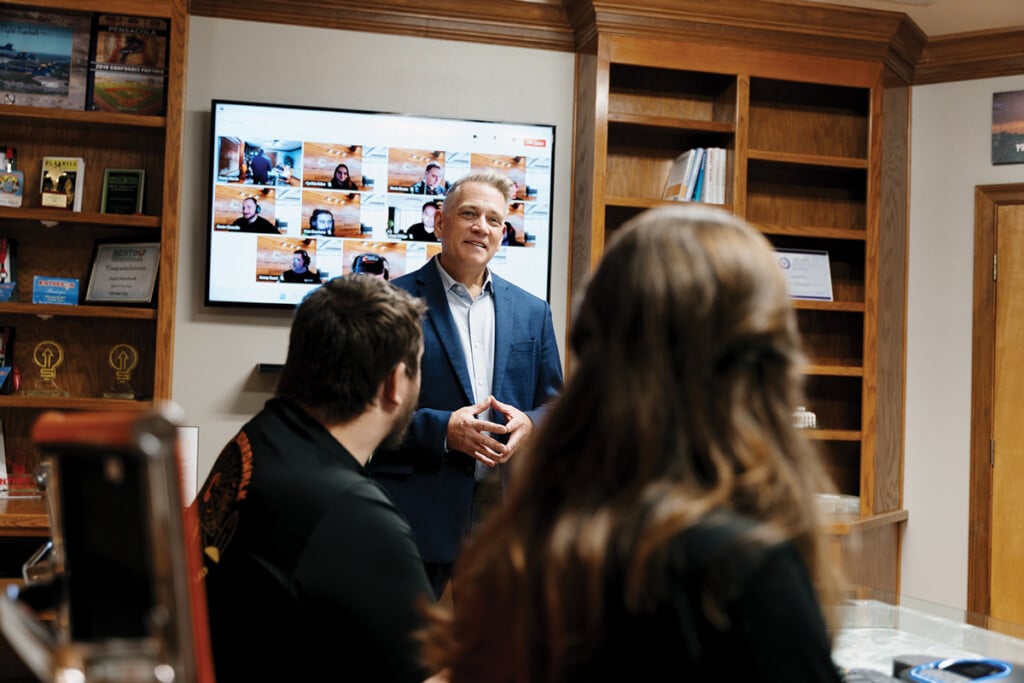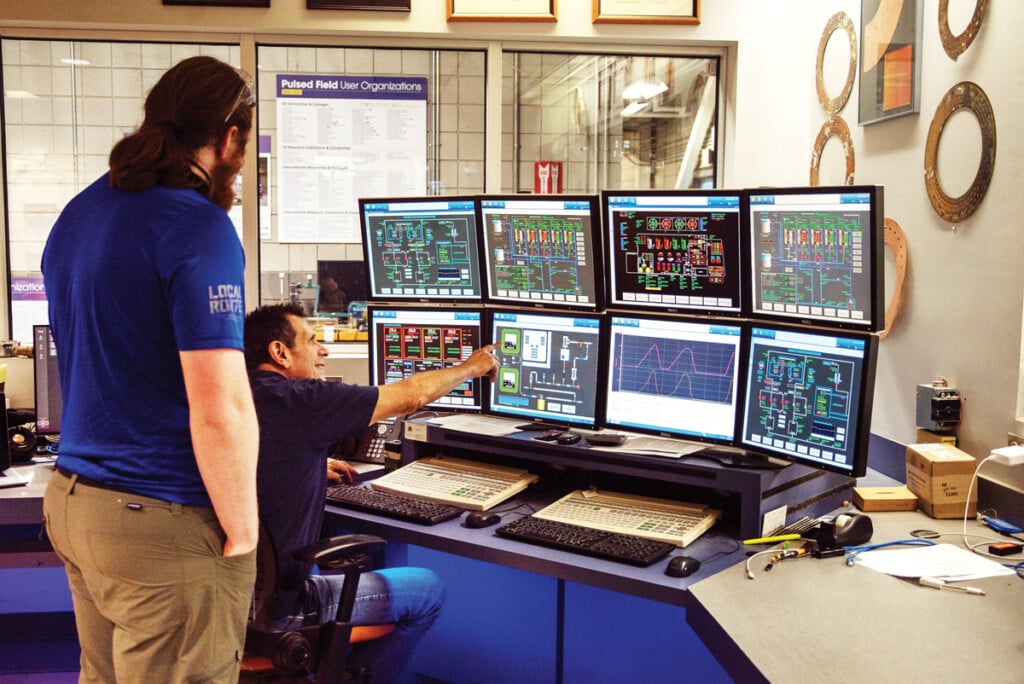Taking the Boardwalk
From LA to Pensacola

Long before Tim Shoop founded Digital Boardwalk, he lived in a tent on the beaches of North Malibu. In his mid-20s, Shoop moved to the West Coast to pursue an acting career. While finishing up his service in the Navy, Shoop read a People magazine about how Brad Pitt got his start and thought, “I can do that.” After exiting the Navy, he shipped his belongings to his parents in Pensacola and set out to become famous.
“With no contacts or job prospects,” Shoop said, “I packed my Jeep with camping supplies, clothes, and $300 in cash, and set off for Hollywood.”
He spent nearly three months on the beach, bathing at public showers and living on cheap foods, such as Ramen, tuna, crackers, and beanie weenies. Shoop believes, “This period of voluntary homelessness allowed me to live within my means and focus on my larger goals,”—which at the time was to afford meals better than Ramen noodles. While trying to catch his big break, Shoop fell back on the one thing he knew well.
“I got my first computer when I was 13,” Shoop recalled. He learned how computers worked and taught himself to write code. He had the online handle, Maniac, which he used to connect with other tech enthusiasts online as a kid. He had also been involved with theater and acting in his youth.
“So, it was acting or tech,” he said.
While in California, he pursued both. In between auditioning for gigs, he earned a living in IT and took the opportunity to learn all aspects of the business, from answering phones, sales, and installing printers for Jamie Lee Curtis and other celebrities, but this wasn’t enough to sate his ambition.
One night, powered by a vision and copious amounts of coffee, Shoop wrote his first business plan, called ShoopTek Industries. He found investors and pitched his idea, but nothing came of it. Pushing 30, Shoop looked at the bigger picture and decided to leave Hollywood. Though he never ended up on the big screen, he values his time chasing that dream.
“I believe everyone has a unique path to follow,” Shoop said of his eccentric past, “and I will always have a fun story to tell my grandkids.”
Shoop moved to Pensacola, where he began working for Steve Jones selling computer training. At the same time, he launched New Vision Computers, taking contracts to build custom computers.
After growing into a multi-location retail chain, Shoop met with a broker to evaluate his company and was told the company was not worth much and a waste of the broker’s time. Though Shoop now agrees with the broker’s assessment, at the time, the news was devastating.
“After the meeting,” Shoop said, “I sat in my car with tears in my eyes feeling disheartened.”
His lowest point was not homelessness or rejections from his acting pursuits, it was that moment when he realized his business was not viable for the long run.
“I was $200,000 to $300,000 in debt,” he recalled, and the broker had evaluated his business at about that much.
Shoop decided to pivot his business to include a plan for recurring monthly revenue from clients—a fundamental component the broker had said he was missing. This new business, called The Red Door Project, which got its name based on the door color of the small room he worked out of, was to sell IT as a monthly service. He took the idea to one of his major clients who rejected him outright.
“This was before Netflix had normalized subscription fees,” Shoop said, so it was a hard sell, but Shoop persisted, and it paid off.
The Red Door Project evolved into his current company, Digital Boardwalk, which handles IT support for small- to mid-sized companies and offers “a complete IT team for less than in-house staff.”
Additionally, the company provides proactive solutions to technology problems, cybersecurity, and growth-model planning for expanding businesses. With the advent of artificial intelligence and more advanced machine-learning models, Shoop and his teams are aware that in addition to providing new services for the general populace and consumers, any evolutions in technology will benefit unethical actors as well.
“AI has the potential to be a transformative technology, but without proper control and protection, it can be exploited,” Shoop said of the dangers of AI. “We are already witnessing AI being utilized to enhance cyberattacks. Its proficiency in natural language processing enables attackers to craft campaigns in multiple languages with near-perfect grammar, spelling, and tone.”
A decade ago, polymorphic malware changed the landscape of cyber defense, which is code that utilizes a mutation engine to modify its structure enough to avoid detection from malware scanners while maintaining its root function to steal data. With AI, malicious operators can utilize more sophisticated means
of cyberattacks.
“This evolution makes it increasingly challenging for cyber defenses to detect threats and for end users to recognize them,” Shoop explained, but that, “Time is an ever-moving constant, and with it comes inevitable change.”
Few will refute that AI is the new proverbial Pandora’s box. Now that our digital lives are permeated by the technology, there is no off switch. For good or ill, artificial intelligence is the new must-have search phrase used in marketing strategies, pitch decks, and grant proposals surrounding innovative technology for the foreseeable future.
“It is essential to embrace it. At our company, we utilize Microsoft Copilot, among other AI tools, and integrate it into our customers’ environments,” Shoop said, who takes the optimistic approach that AI will not replace jobs but enhance efficiency and job satisfaction, adding, “For businesses, it is a tool that will help achieve more and remain competitive in the marketplace.”
His podcast, Nerds on Tap, meets with business leaders to discuss such matters as entrepreneurship and the impacts of technology on business while enjoying brews provided by local pubs, where they promise, an “unscripted journey filled with impromptu laughter, compelling tech anecdotes, and a hearty dose of beer trivia.”


